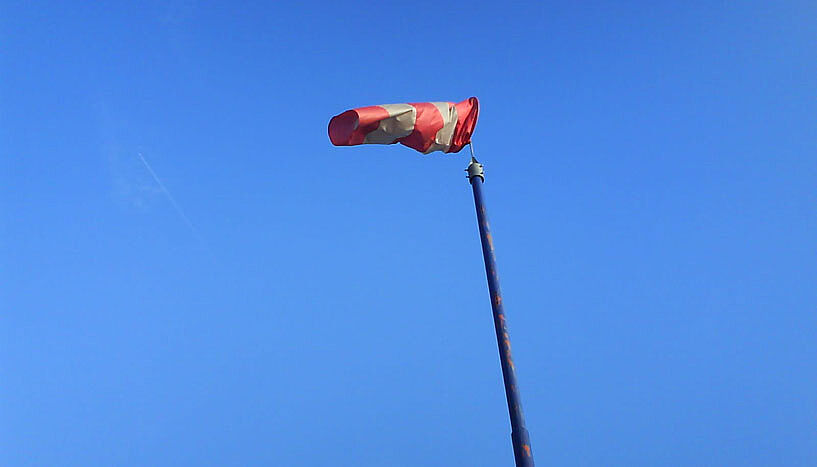Austrian research institutions launch major initiative to assess the effects of extreme climatic events on the environment
04. Mai 2017
The network encompasses several dozen ecosystem monitoring and research sites (Copyright: patrick dax/flickr.com/http://bit.ly/2p00XgZ).
Project aims to collect data
Under the leadership of the Environmental Sciences Research Network of the University of Vienna, the key national actors in long-term ecological research (LTER) join forces to establish a new infrastructure for the collection of environmental data. Funded by the Austrian Research Promotion Agency (FFG), the project aims to collect data on the effects of extreme climatic events on the carbon, water and nitrogen cycle in ecosystems by establishing six cutting-edge measurement sites. The development and upgrading of the sites in the context of the project LTER-CWN (Long-Term Ecosystem Research Infrastructure for Carbon, Water and Nitrogen) is budgeted with EUR 1.96 million, including FFG funding amounting to EUR 1.67 million. The kick-off meeting of the project partners will take place next Friday.
"Our environment is subject to constantly changing conditions. Looking at climate change, there is clear evidence that droughts, heat waves or heavy rainfall change ecosystems – and that this can also happen slowly or with delay", says geoecologist Stephan Glatzel, project coordinator and representative of the Environmental Sciences Research Network of the University of Vienna. Based on long-term ecological research, the scientists aim to identify these changes in ecosystems and better understand the underlying processes, which will help to improve risk assessment.
The five-year project LTER-CWN focuses on the effects of extreme climatic events on greenhouse gas exchange processes (e.g. carbon dioxide, methane and nitrous oxide) between soil and atmosphere, changing water transport and availability, and the release of nitrogen from soils, among others. "The collected data will serve the needs of many research areas. It has to be analysed in an interdisciplinary way and will improve our insight into the complex interactions between the environment and humans", says Thomas Dirnböck, expert on ecosystem research at the Environment Agency Austria.
Next generation LTER
Austria’s long-term ecological research is currently driven by the national LTER-Austria (Long-Term Ecosystem Research Austria) network. The network encompasses several dozen ecosystem monitoring and research sites. However, the default equipment varies greatly.
"With LTER-CWN we take the next step as we will cover all major types of ecosystems in Austria and will establish a well-coordinated network of sites equipped with high-end instruments", says Michael Bahn, ecologist from the University of Innsbruck and Deputy Chairman of LTER-Austria. "This initiative will raise the profile and substantially strengthen Austria’s contribution to international efforts in long-term ecosystem research."
LTER-CWN is one of eight projects that have been approved for funding in the context of the FFG call "R&D Infrastructure Funding". The project consortium consists of the Environmental Sciences Research Network of the University of Vienna and representatives of the University of Natural Resources and Life Sciences (BOKU Vienna), the University of Innsbruck, the Environment Agency Austria and the Austrian Research Centre for Forests (BFW). In addition, the Forschungszentrum Jülich (Jülich research centre) in Germany will support the project in terms of data storage and data management.
Six sites
The six LTER-CWN sites will enable long-term monitoring and research in the characteristic ecosystems of Austria: in forests, in grassland in valleys and the mountains as well as in wetlands resp. peatland. The sites will be used for experimental research as well as for continuous monitoring. The data obtained will serve basic research. The sites will be equipped with cutting-edge technology for measuring greenhouse gas and water fluxes. The initial phase of the project focuses on the technical set-up and the development of a joint data infrastructure. The project team will also develop workshops and trainings for young researchers to facilitate an easy and efficient use of the measurement sites by the research community.
Project partners & LTER-CWN sites
Environmental Sciences Research Network (ESRN) of the University of Vienna (project coordination): operating LTER Pürgschachener Moor and LTER Lake Neusiedler See
University of Natural Resources and Life Sciences (BOKU Vienna): operating LTER research station Rosalia
Environment Agency Austria: operating LTER Zöbelboden
Austrian Research Centre for Forests (BFW): operating ICP Forests/LTER Klausen-Leopoldsdorf
University of Innsbruck: operating LTER Stubai Valley
Forschungszentrum Jülich GmbH (Germany)
Wissenschaftlicher Kontakt
Univ.-Prof. Dipl.-Geogr. Dr. Stephan Glatzel
Institut für Geographie und RegionalforschungUniversität Wien
1090 - Wien, Dr. Josef-Holaubek-Platz 2 (UZA II)
+43-1-4277-486 60
stephan.glatzel@univie.ac.at
Rückfragehinweis
Mag. Alexandra Frey
Media Relations ManagerUniversität Wien
1010 - Wien, Universitätsring 1
+43-1-4277-17533
+43-664-8175675
alexandra.frey@univie.ac.at
